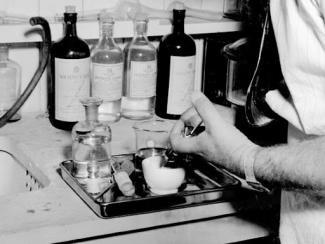
In the 1950s, Dr. Albert Kligman entered Philadelphia’s Holmesburg Prison with one mission: to test its prisoners for scientific research. From now-famous skin cream Retin-A to eye drops to even mind-altering drugs, the painful procedural testing went on for 20 years, and lined his pockets.
And you can only imagine the kind of damage that was done.
“Patch” and “gauze” tests frequently planted burns and incision scars all over prisoners’ bodies. Other drug experiments left them with severe changes to their personalities and behaviors.
So how did Kligman get away with it?
This was actually before the time of scientific “informed consent.” Most participants hadn’t graduated high school, and knew very little about what was actually going on. Kligman himself called it “a wonderful time,” and Holmesburg’s 85% Black prison population “an anthropoid colony.” Meaning: APES, or sub-humans.
Also, because the experiments paid a few dollars compared to regular 15-cent daily prison wages, of course thousands of people signed up. And when it all ended in 1974, Kligman destroyed crucial records that could have proven long-term injuries.
Regardless of whether they were paid, how could it have been consensual when people’s only opportunity for money was to participate in risky experiments while incarcerated and impoverished? Not only was Kligman grossly unethical, but prisons refuse to provide incarcerated people with a liveable, humane environment in the first place.